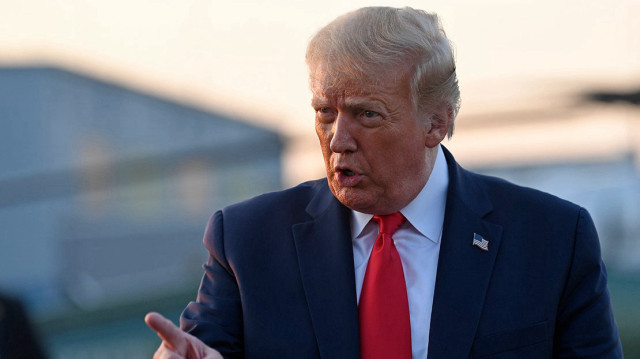
How European states will react to defense incapabilities is still uncertain, paralyzed as they seem by the harsh stance of the US' new president, while what is at stake is no less than the European security order
The return to power of US President Donald Trump, four years after his first term, sheds new light on the need for European states to strengthen their defense capabilities. For more than 75 years, NATO and the US have provided security for Europe. However, today, the new US president might renege on these guarantees. He openly dismisses NATO as a transatlantic alliance and has repeatedly argued that European states free-ride on the US, something he will no longer tolerate. Is he then going to pull out from NATO, or simply add sufficient distance with the alliance so that its credibility erodes as a consequence?
- New urgency for Europe
The debate on the US' commitment to European security is not new, yet it has reached a new level in a context simultaneously marked by a resurgent aggressive Russia and a faltering alliance with Washington. For the Europeans, this raises the question of alternative options. Do they have the will and financial resources to develop their own autonomous defense capacity? Or are they doomed to remain weak and, furthermore, at the mercy of a reluctant US protector?
Some European states have proposed strategic autonomy, aiming for enough military power to eventually reduce dependency on the US. Over the last eight years, EU-led projects in the domain of capability development and its financing, including with money from the bloc, have started the process of emancipation. However, European states tend to disagree on the finality of such an endeavor. Whereas for some, like France, EU-led defense efforts should aim at building a European pillar that would eventually be a substitute to the US, for others, like Germany, building European capacities can only aim at reinforcing the transatlantic bond. According to the EU's foreign policy chief Kaja Kallas, what is needed is “not a European army,” it is “27 European armies that can effectively work together to deter our rivals and defend Europe, preferably with our allies and partners, but alone, if needed.”
- Insufficient European NATO
For NATO Secretary General Mark Rutte, however, European efforts will not be sufficient. As he was talking to the European Parliament earlier this week, Rutte welcomed a “more autonomous European defence” or what he called a “sort of European NATO.” But he then argued that such an ambition would take at least 15 years to achieve and require European states to increase their annual defense spending to as much as 8% of their gross domestic product, compared to just 2% today.
Echoing this, Ukraine President Volodymyr Zelenskyy had blunt words about Europe in his speech at the Davos World Economic Forum. “Europe can't afford to be second or third in line for its allies,” he said. “We need a united European security and defense policy, and all European countries must be willing to spend as much on security as is needed — not just as much as they've gotten used to during years of neglect.” The Ukrainian president calls on Europe as he fears the US might abandon not only its European allies, but Ukraine as well.
- European security order shaken
How European states will react to these defense incapabilities is still uncertain, paralyzed as they seem by the harsh stance of the US' new president. What is at stake is no less than the European security order and a system of alliances established in the immediate post-World War II era. This order was first attacked by Russia's President Putin, but ironically, it might well be even more shaken by President Trump. Ukraine, Western and Eastern European states, but also Türkiye will be impacted if the transatlantic alliance loses credibility. All of them will likely suffer rather than benefit from a possible US withdrawal, while Putin would be the one taking advantage of such a development. This is what awaits Europe, unless Trump becomes the wake-up call it needs to eventually free itself from external dependencies, so that, as Zelenskyy put it, “the world can't afford to ignore it.”
*Opinions expressed in this article are the author's own and do not necessarily reflect Anadolu's editorial policy.
Hello, the comments you share on our site are a valuable resource for other users. Please respect other users and different opinions. Do not use rude, offensive, derogatory, or discriminatory language.
The floor is all yours.








